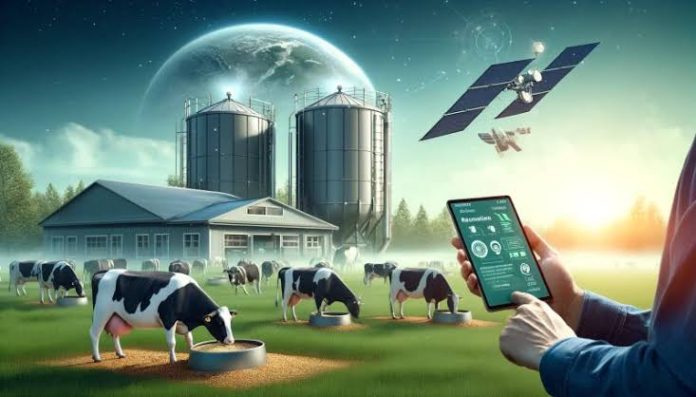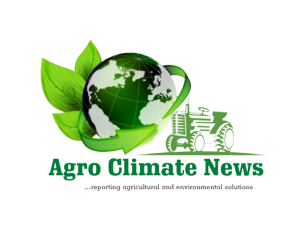By Daily Trust
Mr. Emmanuel Nnoko is the Managing Director of Livestock Genetics Africa. He has spent nearly three decades in Europe, particularly in Sweden, where he gained invaluable experience and expertise in the field of livestock genetics. This extensive exposure to European agricultural practices and technologies has equipped him, enabling him to apply innovative solutions to Nigeria’s livestock needs. In this interview with Daily Trust, he explains how Artificial insemination (AI) can benefit Nigerian livestock farmers. Excerpts:
You have been focusing on helping farmers improve their cattle breeds for better productivity. What informed your decision?
I’ve spent a lot of time in Europe, notably Sweden, but after witnessing the benefits of agriculture, particularly with regards to cattle, I decided to come back home. In light of this, we founded Livestock Genetic Africa. We represent a breeding company in Denmark that uses Viking genetics. Viking is a well-known breeding company worldwide.
I saw that the country’s livestock has potential, but although there are over 20 million cows, the productivity of our cows is extremely low. While we do have a large number of cows, the output of that product is extremely low because, in a typical local setting, the cows produce one to two litres of milk per day, whereas in a normal setting in the West, the cows produce at least 20 to 40 litres. This is a significant difference, which is why I came back to Nigeria to improve our local breed so that we can produce 20 to 35 litres of milk per day.
Have farmers adopted and utilised the technology you brought into the livestock sector since you came up with Genetic Africa in 2022?
Yes. The first farm we used as a trial farm was that of the current Minister of Livestock, Idi Muktar Maiha. He is the first farmer to use our semen, which we offer along with other embryo transfers, and we had a 70-75 percent success rate on his farm.
We have continued to operate on various farms since then. Another large farmer in Kaduna is Arla Farm, which we service. We have about 80 percent success on their farm. There are several farms where we are currently operating as a result of our work on other farms. We’re in Jigawa. Some farmers who used the technology from us have given us positive feedback on our semen’s mobility and ability. The most significant reason for saying this is that the only thing that can propel Nigeria forward is the genetic development of livestock. Without genetic enhancement, we cannot scale up to produce the grade of animal that will provide you with that type of milk or meat. That is why we currently service both cattle and dairy farms. We also collaborate with states. We provide services to farmers in Niger State. We are working on certain initiatives in Taraba State, specifically the Sadauna Animals Transformation Programme, and we have organised some farmers who have agreed to participate in the project to enhance their animals.
Which breeds do you supply to farmers?
In the dairy industry, for example, there are three different breeds to consider. We have the Jersey, the Holstein, and the Ayrshire. The Holstein is the most versatile breed because it produces the most milk; you can make up to 20 to 40 litres of milk. When it comes to Viking Jersey or Viking Red, they give up to 30 litres. What is most important is the fat content because they are very good for cheese and other things, so the fat content is very high.
Read Also: INTERVIEW: Adaptation best solution to climate change in Nigeria – Prof. _Tanko
Read Also: Mubi livestock market generates N29bn annually -Gov Fintiri
When it comes to beef, today we have six types of beef breeds. We have Simmental, Charolai, Angus, Hereford, Belgian Blue and Limousin. When it comes to the kind of breed we have in Nigeria today, the meat is so hard, and it takes a longer time for the animal to mature, to get that body carcass, which is up to maybe 300 to 400kg. But when it comes to our Viking breed, in six months, you can already scale the body carcass to up to 800 to 700 Kilogrammes. The meat is softer, and there’s a lot of benefit when you can upgrade. In a local setting, these local cows take maybe three to four years to mature, while in a local Viking breed, it takes from six months to one year to mature for the purpose you want to use it for.
Dairy needs lots of finances. Do you have a program that takes care of small-scale farmers or community people who want to set up a dairy or beef farm?
Part of our concern as an organisation is looking at the social corporate responsibility and then supporting individual farmers, especially the smallholder farmers, so that they too can benefit from this. Normally, by the settings, due to awareness and financial capacity, most of the people that go for this at this level are basically the elites. Now, the question about having concern and special consideration for community-based approach and people that are the smallholder farmers is really part of what the Livestock Genetics Africa is having as a roadmap that is supporting this. So our approach is highly accommodating for them, especially when they are coming in as a group in the form of a community, or whether they are being supported by a government or by any organization so that they can have this catch. We realize that the only way for us to have massive value generation in the sector is when the communities and individual smallholder farmers are involved, because operating with the elites only limits the value to that top cycle. So definitely, we have special consideration that comes based on the available situation, and we can collaborate with relevant stakeholders to empower these people through this new breeding system so that they can, in their own way, have a very sustainable economic system while supporting the general value chain for both the beef and the milk.
We have different agroecological zones here and we are told some of the breeds might have challenges surviving here. Do you consider that when you do insemination across the country?
Yes. We consider things like the kind of semen we bring in. We have to have a high rate of calf survival, easy calving, good health, and the adaptability of this environment. So, that is why we select the best because when you inseminate the local breed and the foreign breed, it has the gene of 50-50. So, the gene of that 50-50 has made the F1 generation of that calf become adaptable to the environment. The disease resistance is very good. All these things are being put into consideration.
How affordable would this be for some farmers or even young people who want to start a dairy farm?
We are not too rigid about pricing. Like we said, we are doing a business that is service-based, and we consider the development of the sector more important than profit. And because of that, it is very, very affordable, especially when you are coming as a group.
When you are coming as a group, not as an individual farmer, of course, it means then you are going to have a higher volume of segments and service needs. Then, definitely, you’d have a good subsidy. So, nobody should be scared about pricing here, because the most important thing to consider is the value that you would derive from this, not even the price.
For instance, imagine going to these Western countries to purchase a bull, transport it to Nigeria, offload it, take it to your own farm, and then look at the possibility of it adopting the ecological system in Nigeria. Now, do the calculations and see. So it’s highly affordable, especially looking at the value that comes out with that.
For the youth, having one cow can help you to pay your school fees, even as a woman who has one cow in the backyard, and gets 20 litres of milk every day. When you sell 20 litres of milk, it can help you to cover lots of bills for the family. When you come to Livestock Genetics Africa, we encourage you, we train you, we guide you in different ways, especially the local farmers, the women, and the youth, so that they can see livestock farming as very constructive and interesting.
It’s not so difficult. You don’t need much education, or a lot of equipment. It’s just something you can do from your backyard. You can do it from anywhere; with the very small space you have. And that’s why we encourage you to do it.
What does a farmer need to set up a livestock farm for either dairy or beef?
Once you get in contact with Livestock Genetics Africa, you will be guided properly on what you should do. What we do is not only about profits. We are not only a profit-centered organisation, but we are a service provider that works with passion to help the country develop its livestock system, compared to the global developed system that we’ve come from. Our support is not only about our profit, but it’s also for the general development of the system. And then we want to change the understanding and people’s perception that livestock is for a particular segment of the people in society. This livestock is an economic venture that can be done by anybody, irrespective of their tribe, geographical location or gender. If you have one cow in a modern backyard, it can serve you a lot. You don’t need a big space once you are doing a modern system.
Read Also: Beyond the creation of a livestock ministry
So, we are here to support the government and individuals to achieve these things in a way that is sustainable and beneficial. We supply not only the semen, but the expertise, the knowledge, so that people are guided on the modern system. As stakeholders in the Nigerian livestock project, we must support the system, especially with the coming of the Ministry of Livestock Development.



